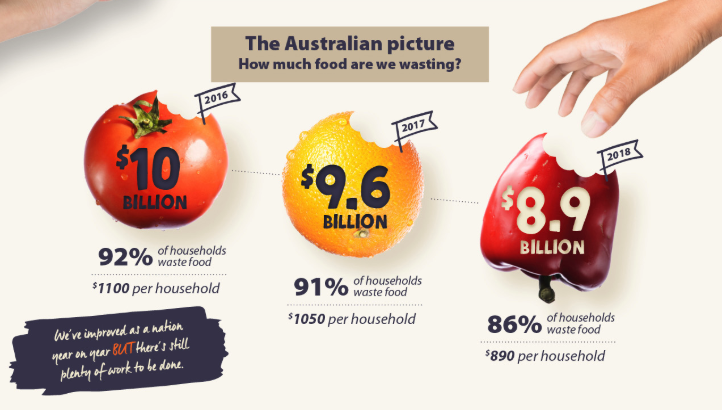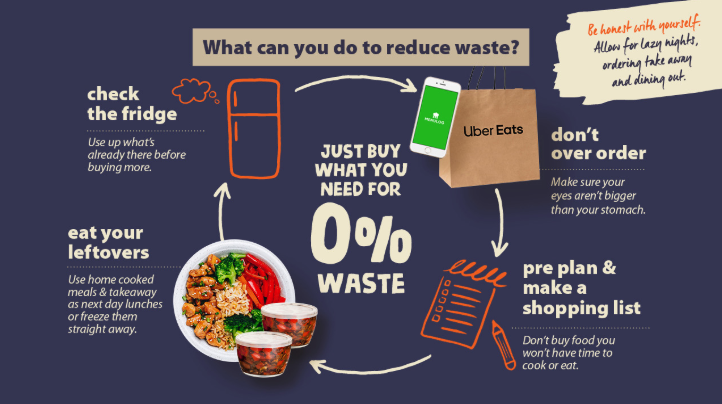Australians reduced their overall food waste by $700 million (AUD) last year, but specialists claim an abundance of food continues to be purchased, allowed to rot before reaching the retail stage, and thrown out ahead of being eaten.
A report released Friday disclosed each Australian household tossed an average $890 worth of food in the garbage in 2018, racking up an overall annual waste bill of $8.9 billion. With each person binning nearly 300 kilograms of food a year, Australia still sits in fourth position on the global food wastage rank.
Take Action: Share How Technology is Solving Food Waste and Hunger
"It is pleasing that Australian consumers are wasting less food compared to 12 months ago,” said Glenn Wealands, head of client experience at Rabobank, a rural-focused lender that compiled the new report. “However, there is clearly much to do to raise awareness about food production and waste and more urgently implement better practices to reduce waste.”

New South Wales came in as the nation's highest waste state, with an average household waste of $922. Similarly, Millennials ranked as the most excessive waste generation, sending $1,200 worth of food to the bin each year.
The key reasons Australians waste food is predominantly due to food going off before it can be consumed, followed by people buying too much produce when shopping. According to Wealands, individual consumers need to be more cautious of their food habits for the sake of millions of Australians who struggle with food insecurity each year.
"As our population increases, we will struggle to feed additional mouths. If we don’t curb our waste, we could run out by 2050,” Wealands stated, as reported by the Australian Associated Press. “While the reduction in food waste is a global responsibility, we all – as individual consumers – can play a significant role in sustaining this planet for generations to come.”

Lucy Farmer, communications director of food rescue organization Fareshare, told Global Citizen that while the report shows Australians are still sending too much produce to the bin, food waste solutions are simple.
“Reducing food waste stems from planning for meals, budgeting effectively, and making full use of the freezer,” Farmer said. “There is also a lot of misunderstanding around the difference between ‘use by’ and ‘best before’ dates. A lot of people needlessly throw food away when it passes it ‘use by’ date. This date is more of a guide to optimum freshness, not the date by which the food must be used before becoming dangerous."
The food waste problem is not merely limited to curbing hunger.
The production of food uses significant quantities of water and land. Each minute, six soccer fields worth of forests are bulldozed down to grow food that is subsequently thrown out.
Food waste then ends up in landfills, where it decomposes and emits methane, a potent greenhouse gas that contributes to global warming. According to the report, if global food waste were a country, it would be the third largest contributor to climate change.